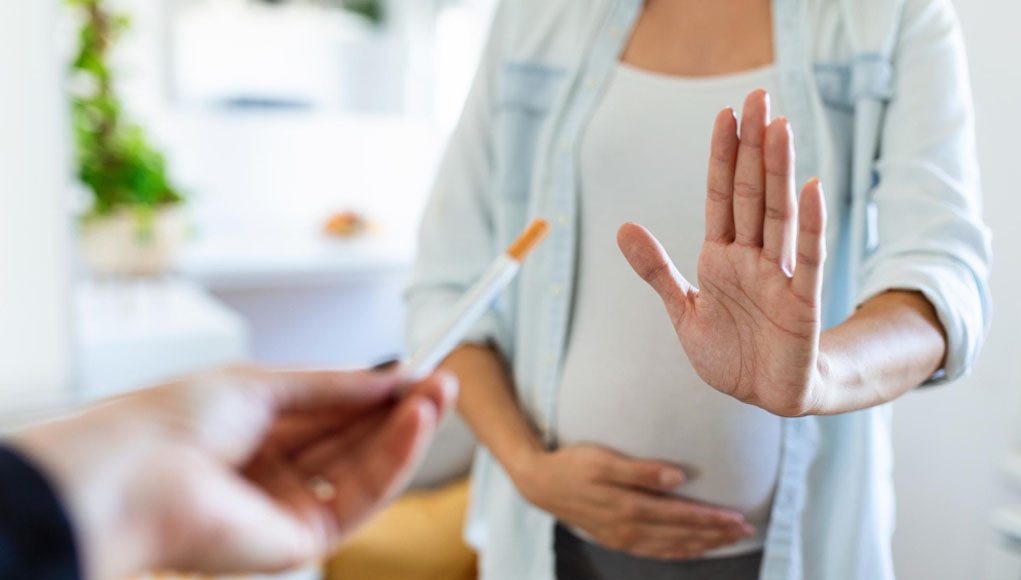Vaping during pregnancy has become a topic of growing debate, with experts divided on its safety compared to traditional smoking. On one hand, several studies and experts in the field suggest that vaping may be a less harmful alternative to smoking for expectant mothers who struggle to quit nicotine altogether. Studies have shown that vapes deliver nicotine without many of the toxic chemicals found in combustible cigarettes, which are linked to adverse outcomes like low birth weight, premature birth, and stillbirth. Public health advocates argue that for women unable to quit smoking, switching to vaping could reduce these risks and offer a harm reduction strategy.
However, many health professionals caution against vaping during pregnancy claiming that nicotine can negatively impact fetal brain and lung development, while emphasizing that the long-term effects of inhaling vape flavours and additives, remain largely unknown. The American College of Obstetricians and Gynecologists (ACOG) advises pregnant women to avoid both smoking and vaping, insisting that no form of nicotine exposure is entirely safe during pregnancy.
An often overlooked factor: third-hand exposure
A recent study led by researchers at the University of Technology Sydney (UTS), exposed pregnant mice to vape residue on towels. After birth, the offspring were infected with the flu to assess their immune response. The findings revealed that CD8+ T cells, a crucial type of immune cell responsible for combating infections and cancer, became dysregulated in the exposed offspring, suggesting that third-hand exposure to vapour may disrupt immune function.
The study’s lead authors, Dr. Chantal Donovan and Dr. Richard Kim, noted this is the first research to demonstrate that maternal exposure to third-hand vape residue can have long-lasting effects on immune cell responses in the lungs and bone marrow of offspring. These findings shed light on the fact that even indirect exposure, such as touching surfaces in vape-filled environments, may pose risks.
The combined effect of cannabis and nicotine consumption
While a study conducted by Oregon Health & Science University (OHSU) reported that pregnant individuals who use both cannabis and nicotine face a significantly higher risk of poor health outcomes for their newborns, compared to those who use either substance alone. Published in JAMA Network Open, the research underscores the importance of early clinical counseling on substance use during pregnancy.
Analyzing data from over 3 million pregnant patients,the research team found that combined cannabis and nicotine use during pregnancy led to increased rates of newborn death, small gestational size, and preterm delivery. Infant death rates were notably four times higher in individuals using both substances compared to non-users, and nearly twice as high compared to those using either cannabis or nicotine alone. Hence, the study suggests that abstaining from at least one of these substances can mitigate pregnancy risks associated with their combined use.
Dr. Jamie Lo, the study’s corresponding author, emphasized the necessity of destigmatizing discussions around substance use during pregnancy to facilitate more informed decisions. The study advocates for increased efforts to educate pregnant individuals about the risks associated with cannabis and nicotine use. While lead study author Dr. Adam Crosland, highlighted the importance of providing evidence-based recommendations and patient-centered treatment options to support healthier outcomes.
Vaping as a safer alternative for pregnant smokers who are unable to quit
Meanwhile, the debate on whether vaping can be seen as a safer alternative to smoking, or whether it poses its own set of significant risks to fetal development, continues. Trials have been conducted to assess the potential of vaping as a harm reduction tool for pregnant smokers. These studies aimed to determine whether e-cigarettes can help pregnant women reduce or quit smoking, given the known dangers of smoking during pregnancy, such as low birth weight and preterm birth.
While some UK councils have launched programs assisting pregnant women financially by offering vouchers worth up to £400 (around $500) to spend on vapes. Such initiatives were part of the councils’ stop smoking services, aimed at improving family health and helping them save money.
Ultimately, tobacco harm reduction experts emphasize that while vaping is not recommended during pregnancy, or ever for non-smokers, it remains a safer alternative for pregnant women who are unable to quit smoking entirely. These experts stress that switching to vaping can significantly reduce the health risks associated with smoking for both the mother and the unborn child. Delivering nicotine without the harmful chemicals found in cigarettes, vapes offer a harm reduction approach by providing a less harmful option for those who are uable to quit smoking during pregnancy.












